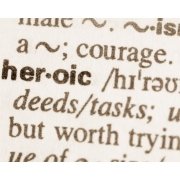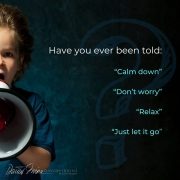Bridges Of Trust: Making Accountability Authentic
Everyone’s saying it: organizations needs to be accountable. Leaders need to be accountable. Employees need to be accountable. So why do most accountability programs fail?
The concept and experience of accountability needs rejuvenation. You have to get to the deep meaning of accountability. You have to be clear about who you are accountable to, “for what specific results,” and “for what matters most.” If you aren’t, accountability becomes just another organizational buzzword, or worse, a hammer to punish people,
Accountability, when understood and applied effectively, will transform the your organization, your work, and your life. Accountability is the keystone of trust, the foundation of labour and life.
In it’s simplist form, accountability is the ability to be counted on. Real accountability is rooted in the behaviour of people. It is not, as some think, a character trait or something embedded in an organization. Accountability is determined by how you act.
When people accept real accountability, life in an organization or in a relationship is straightforward and productive. No one needs a pack of dogs eating their homework or a fresh pile of excuses to explain incomplete tasks. People do what they say they are going to do—and paradoxically when this happens real accountability creates enormous freedom and the opportunity for creativity.
Real accountability leads us back to our roots as people with integrity, unleashing the human potential that can so easily be suppressed. In our complex organizations, our busy families and our fast paced society, accountability can be diffused or completely lost—and when accountability is lost, we lose touch with our core. When we grasp real accountability we get a grip on results.
Accountable Behaviours
Real accountability requires you to do four things consistently:
- Take Ownership.
No one but you cares about the reason you let someone down. Deciding, once and for all, that all blame is a waste of time, will change your life forever. Decide to give to others what you expect from others. Be the change that you wish to see around you. Deciding that you have helped create the world around you – and therefore you are the one to step into healing it – is the ultimate act of accountability. Ownership means choosing service over self-interest, contribution over consumerism, and gratitude andgenerosity over entitlement. Ownership makes you a force in the world that changes the world. George Bernard Shaw knew this when he said, “This is the true joy in life, the being used for a purpose recognized by yourself as a mighty one; the being a force of nature instead of a feverish, selfish little clod of ailments and grievances complaining that the world will not devote itself to making you happy.” - Carry through to completion the responsibilities entrusted to you.
Henry Ford once said, “you can’t build a reputation on what you’re going to do.” Real accountability means only making promises you know you can – and will – deliver. Real accountability also requires you to search for and clarify accountabilities that are assumed in your roles, to judge which accountabilities you accept, and to carry those accountabilities through to completion. When you make a promise to someone you now have a creditor, where a debt is owed. Once you have made the promise, accountability means that you then deliver on your promise. When circumstances prohibit you from fulfilling your promise, let the creditor know as soon as you know, that the commitment is jeopardized. Negotiate, at this point, to minimize damages and re-commit to a new course of action. - Stand up for your actions.
Real accountability depends upon transparency. Others need to know who did what, and who is accountable for doing something. Standing up for your actions in public is very relaxing when you are confident that you have acted ethically and with your best efforts. Standing up for your actions is another aspect of ownership, in that it means owning up to mistakes. Though owning up publically for the mistakes you make may not be comfortable, it takes less effort and results in more respect than hiding or running from the truth. No one ever thought less of a person who stood up and said, “I’m accountable for that.” - Stand behind your results.
The effects of your actions—your results—matter more than the actions themselves. Yes, you sent the memo, but did the memo produce the desired effect? You explained to your child how much a pencil hurts when jabbed into an uncle, but has her behaviour improved? People are accountable for producing a result, not just for taking an action. Real accountability encompasses the unintended results as well as the ones you mean to produce. When you act to stop a child’s unsocial behaviour, you are also accountable for the effect your actions have on the child’s sense of safety and love. Or when you produce a high quality running shoe, you are accountable for the effect your plant’s effluent has on the local water supply. Real accountability requires an acceptance of responsibility for all the results your actions (or inactions) produce









